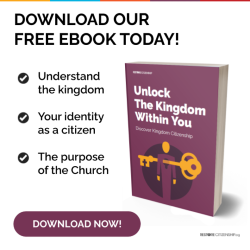In this present climate faith, followers, fear and fundamentalists pervades the backdrop of our daily news digest.
Whether it be the war on terrorism fuelled by international policies or national tensions between ethnic, religious and political groups regarding immigration. All are ultimately vying for an ideological dominance of our world view.
Needless to say at this time it is imperative we know the difference between faith and fear, followers and fundamentalists and the process which can so easily move people from following to fundamentalism.
The importance of knowing the difference has escalated as citizens have begun to act independently on their own terms. An example of this has been the pilgrimaging to fight for or against Isis.
Recently in the news three teenagers left the UK to go to Syria, while ex servicemen from the armed forces have been doing likewise. What you may ask links the two accounts? Well both are fighting for a cause. Both are acting independently from their authority and both are fighting out of the fear either one might prevail.
So what is the difference? How do we know who are followers and who are fundamentalists? Aren't followers fundamentalists?
Lets start by looking at the meaning of the terms.
A Follower
The dictionary states;
- a person who follows another in regard to his or her ideas or belief; disciple or adherent.
- a person who imitates, copies, or takes as a model or ideal:
A Fundamentalist
Wikipedia states: The term fundamentalist usually has a religious connotation indicating unwavering attachment to a set of irreducible beliefs, but fundamentalism has come to be applied to a broad tendency among certain groups, mainly (although not exclusively) in religion.
This tendency is most often characterized by a markedly strict literalism as applied to certain specific scriptures, dogmas or ideologies, and a strong sense of the importance of maintaining ingroup and outgroup distinctions.
The question is whether the terms followers and fundamentalists provide sufficient distinction especially in the instance where those who are called fundamentalists define themselves as true followers of one particular ideology or another.
The rise of fundamentalism notably takes place particularly when 'religious' groups become moderate or lukewarm about their faith to the point where what distinguishes them from others in society becomes unclear.
Within this context the radical emerges with a desire to redraw the line of distinction by identifying what others of the same faith should or should not be doing.
This usually involves an extreme position of their truth, which often hasn't really been worked out.
You may ask, doesn't that mean most faiths comprise of fundamentalism when we see so many factions?
On the road to articulating a more clearer expression of faith and liberty followers who struggle with a redundant status quo can legitimately pursue change.
Not all change is an expression of fundamentalism. It is the unique drivers of faith and fear that set the tone and character of why an ideology becomes a fundamentalists view.
And this is where faith and fear come into the discussion. These distinctions have also become blurred where people of 'faith' exercise 'fundamentalist' views.
If a world view is driven by and large by fear regardless of who supports it can it be linked to faith? I would argue no.
Subsequently much of today's propaganda, which is fuelling extremism is driven by fear. On the one side a fear of the encroachment of western values deemed by many followers to be licentious and contrary to religious teachings and the other a fear of an attack on freedom of speech by oppressive regimes. Two extreme positions, which couldn't be any further poles apart.
These extreme views fuelled by ideals only further to separate people along false lines.
So where do we begin? If we are going to tackle this it must start with confessing and addressing our own fears that casts a shadow and influences our ideologies. Then and only then can we begin to allay the fears of others with assurances drawn from our acquired faith in the bigger picture.
When our fears drive us, limitations come into force which box the expression of our beliefs and cultivate a reactive desire to control the space we believe is ours. Subsequently whilst this space of expression becomes smaller the ideology of a them and us becomes bigger and appears less reconcilable.
We are admonished by Paul the apostle to ensure we do not fight the wrong battles, which conclude with a vain attempt to control what is not within our sphere or domain.
1 Corinthians 9:26 'Therefore I do not run like someone running aimlessly; I do not fight like a boxer beating the air'
This is what I fear (legitimately) is what is taking place in the stratas of society. Much of what I hear today from religious people is the ideology that due to external pressure they do not have the liberty to express their faith.
In response I would ask the following:
Firstly, when has there ever been a time where people of the faith were able to express their beliefs without external pressure?
Second, has there ever been a time where the environment was conducive and acceptant of beliefs?
Third, is this idea(ology) the right starting point?
Fourth, is the issue with this pressure reflecting a deeper matter to do with the insufficiency of your ideology which limits the expression of your faith?
Hence the fourth point requires a deeper exploration, reflection and adjustment.
This is where as followers we must understand that our faith and our ideologies are two different things. Our faith is unique, distinct and permanent. Our ideologies, which so often frames our faith must be ever tested and tried in order to become relevant and manifest the liberty of our Kingdom citizenship.
Why is this important for Kingdom citizenship?
As we approach Easter traditional believers celebrate the time honoured death and resurrection of our Lord.
This period should be a time of deep reflection regarding the circumstances of the event. Unfortunately, this is often shrouded in the dogma of our religious ideologies rather than the quintessential truth.
The truth that a King was willing to pay the highest price of martyrdom and in keeping with a true patriot be willing to lose everything for securing the price of our citizenship into the Kingdom of Heaven.
If we were to take a fresh look at the death of our Lord without our resurrection tinted glasses of religious hindsight what would you say if you were in the crowd? A true follower or a fundamentalist? Would your perspective be tarnished by fear or faith?





